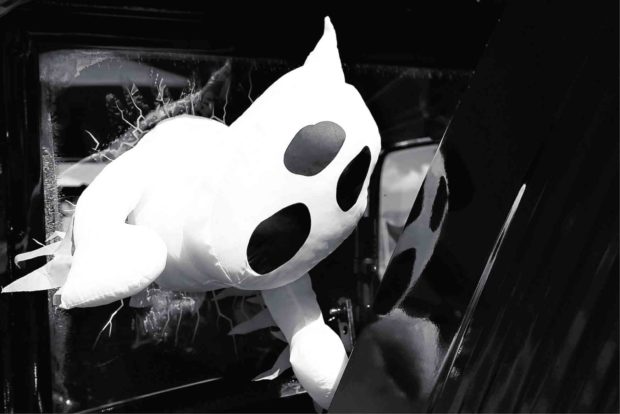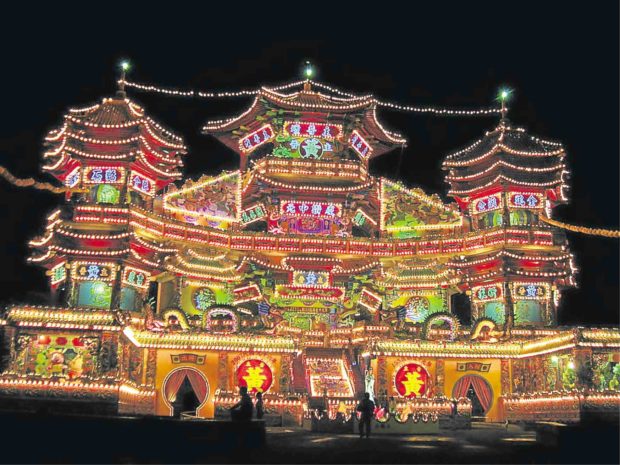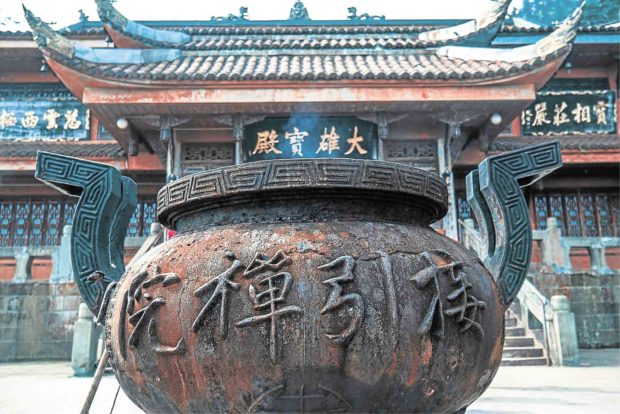Who’s afraid of ghosts?

The Ghost Month is now upon us. This period is often seen as a bad time to start a business, kick-off house construction, and conduct any major decisions in life for fear of misfortune. It’s the time of the year when believers look over their shoulders warily, on guard for wayward spirits.
Contrary to popular belief, however, this custom was not founded on the fear of ghosts. Rather, it was born out of peace and respect for our ancestors. Today, we take a closer look at Ghost Month in Asia and see why this period is not meant to be a time of distress, but a time of commemoration.
A call for peace
The Keelung Zhongyuan Ghost Festival is one of the most anticipated events in Taiwan every year. Based on Taoist beliefs, this festival celebrates the decree of the Chinese Guardian of Hell who would allow lost souls of the dead to visit the mortal world on the seventh lunar month of each year. To help them see “The Way,” he would open the gates to earth and let the souls take pleasure in the incense, candles and food offered by the living in their honor.

Historically, the festival finds its origin from the 19th century clash of the Changchow and Chuanchow people. On August 1851, the two immigrant factions from the Fukien province of China battled against each other in a violent confrontation. The war was due to conflicts in business, land and beliefs in general. Both groups, however, suffered so many heartbreaking losses that their leaders finally agreed to a truce.
To discourage vengeance and enforce peace in the land, the dead of both factions were buried together. The Laodagong Temple, which literally translates to the Temple of the Deceased, was erected over the burial site to commemorate the battle. Food and incense were sacrificed to ask pardon for the sins of the dead and save them from eternal suffering.
Now, more than 150 years later, the tradition of sacrifice continues, albeit in more celebratory circumstances.
A festival for the dead
The Keelung Mid-Summer Ghost Festival begins with the opening of the gates of the “Old Venerable” Temple. Lamps are lit on the 12th day and a procession of lanterns is held on the 13th day.
Midway into the month, sacrifices are held as per tradition to relieve ghosts of their torment. A ceremonial dance is performed in the streets to appease the ghosts and keep them from getting angry. The celebration ends with the closing of the tower gate on the first date of the eighth lunar month.
Far from being a somber spectacle, the festival is full of lights, color and sounds. Paper lanterns in the shape of houses are paraded around Keelung and released into the sea at midnight. The Zhupu Altar, considered the main attraction of the Ghost Festival, hosts abundant food to feed the hungry ghosts. By the closing hours of the last day, a dancer called Zhongkui performs to encourage the ghosts to return to the Underworld.
While the Taiwanese still follow traditional superstitions during this period, this annual celebration revels in the time of the year when people reunite with their deceased loved ones.
Comparable to Mexico’s Día de los Muertos, the festivity is considered a happy occasion as it pays tribute to the end of a war and the memories of ancestors. For the Taiwanese, the period is not meant to scare us into hiding from the unknown, but rather encourages us to respect the past and prepare for the future.
A respect for beliefs
Young people today are less aware of the origins of this annual tradition. Ghost Month is often featured in the media as a time to avoid changes out of fear of ghosts and bad luck.

Another way of approaching things, however, is considering the importance of these beliefs in our society. Beyond superstition, Ghost Month reveals the role of tradition in our day to day tasks. It paves the way for culture to play a role in our decision-making when it comes to our lives’ most important events.
As an example, a study conducted by Agarwal Sumit and Sing Tien Foo of the National University of Singapore looked at the effects of Ghost Month in Singapore’s housing market. In many Asian cultures, it is considered taboo to buy real property or start construction during this time of the year. The two academics took into account recorded sale transactions of homes from 2000 to 2009 in Singapore.
Sumit and Sing presented statistics to determine if buying properties during the Ghost Month brings bad luck. While their study did not fully debunk the superstition, their 10-year period study suggests that “Chinese buyers who bought houses in the Hungry Months did not have a higher probability of getting into car accidents” (The Straits Times, 2015).
Nevertheless, the pair’s research revealed that the Chinese still abide by the old beliefs. The people who bought homes were mostly foreigners who did not believe in the superstition. The Chinese people were also willing to pay extra for houses that have “lucky” factors, such as the number 8 in the address. Investors over the age of 50 were also established to be the ones least likely to buy during this period.
While Sumit and Sing’s study cannot substantiate the validity of Ghost Month, they are able to prove one thing: people follow tradition. The Ghost Month is still present in the Singaporean culture and it is a driving force of the country’s real estate market.

Considering both Taiwan’s revelries and Singapore’s wary real estate market in August, we can say that the Ghost Month is still very much alive in Asian traditions. Whether you believe in it or not, it’s here to stay.
Beyond the fear of ghosts, this practice remains essential as it is our way of expressing our respect for our ancestors and our culture. So if you’re keen to buy a house or invest in a condominium this month, don’t let the ghosts stop you.
It would be nice, however, if you could offer prayers and sacrifices for them as a way of honoring their memories.
Sources:
Bigmorr, Someformofhuman, via Wikimedia Commons; The ‘Hungry Ghost Month’ Effect on Housing by Agarwal Sumit and Sing Tien Foo (The Straits Times, 2015); www.klcg.gov.tw; www.taiwangods.com; pixabay.com; David Besh via pexels.com
